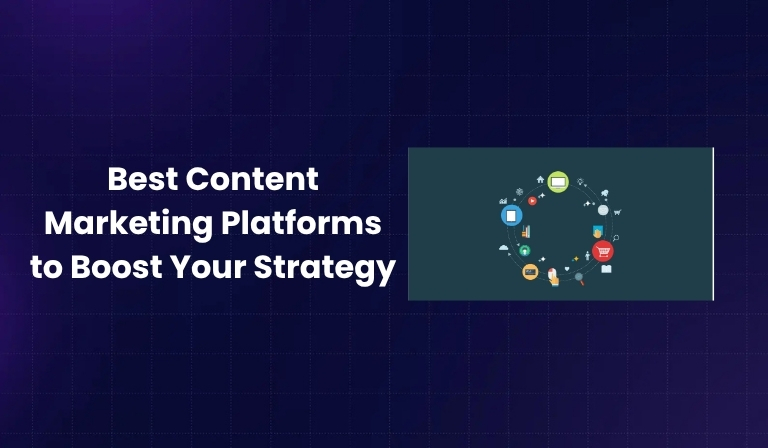Content is still king, but in 2025, the true power lies in how you distribute and manage content. With over 46% of SEO professionals heavily focused on content creation, leveraging the right content marketing platform is essential to stay competitive and scale your strategy effectively.
Content marketing platforms are tools designed to help you create, distribute, optimize, and analyze your content across different channels seamlessly. This blog will guide you through nine of the best content marketing platforms of 2025, helping you choose the right one based on features, pricing, integrations, and usability.
What to Look for in a Content Marketing Platform
Selecting the perfect content marketing platform is more than picking a popular name. You need features that align with your business goals and team capabilities. Here are key aspects to consider:
- Content Creation and Editing: Does the platform support easy content drafting and editing with collaborative features?
- Content Calendar and Scheduling: Can you plan publishing dates across multiple channels and automate distribution?
- Multi-Channel Distribution: Does it enable posting content on social media, blogs, email, and other platforms?
- Analytics and Performance Tracking: Are detailed metrics on engagement, reach, and ROI accessible?
- AI-Driven Insights: Does the platform offer AI tools for content suggestions, optimization, and trend spotting?
- SEO Optimization Tools: Are SEO best practices integrated to improve organic reach?
- Integration: Can it connect with your CRM, marketing automation, analytics, and other tools?
- User-Friendliness: How easy is the onboarding and daily usage for your team?
- Customer Support: What level of service and training is provided?
- Pricing and Scalability: Are there flexible plans to grow with your business?
1: Contently — Best for Enterprise Content Scheduling and Management
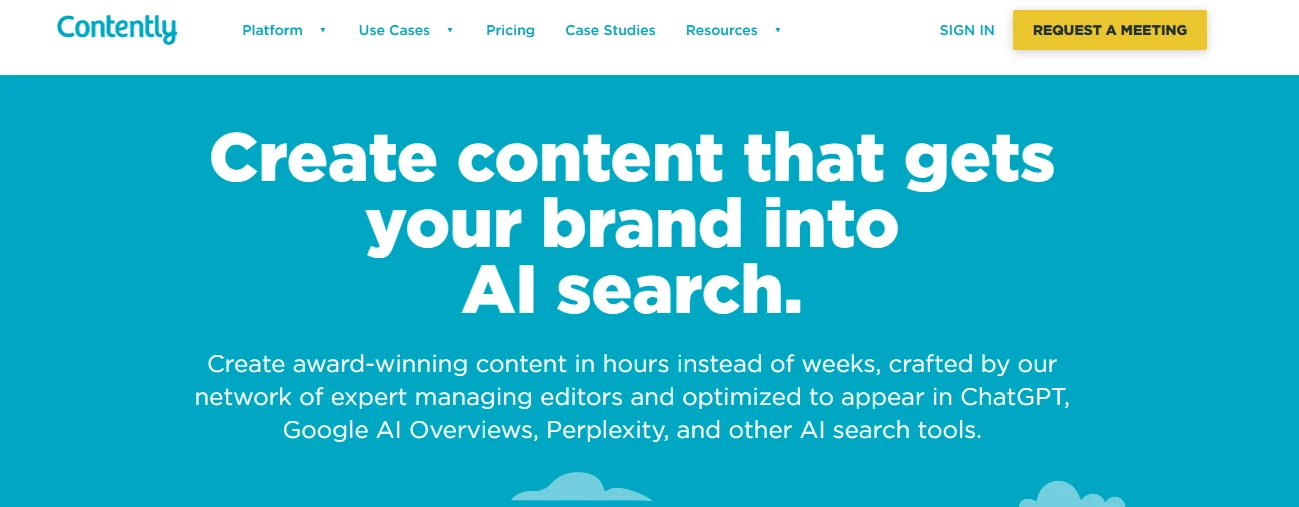
Contently stands out with its robust scheduling capabilities and premium creative network access. It allows enterprises to manage complex content calendars, streamline distributed teams, and maintain a consistent brand voice.
- Features: Content planning and scheduling, AI-powered content insights, SEO recommendations, access to top-tier freelance writers and designers.
- Pricing: Enterprise-level pricing tailored to business needs.
- Best for: Large enterprises requiring professional-grade content management and outsourcing.
- Pros: Premium creative network, data-driven strategies, SEO tools.
- Cons: High cost, not suited for small teams.
2: BuzzSumo — Best for Social Media Content and Influencer Insights
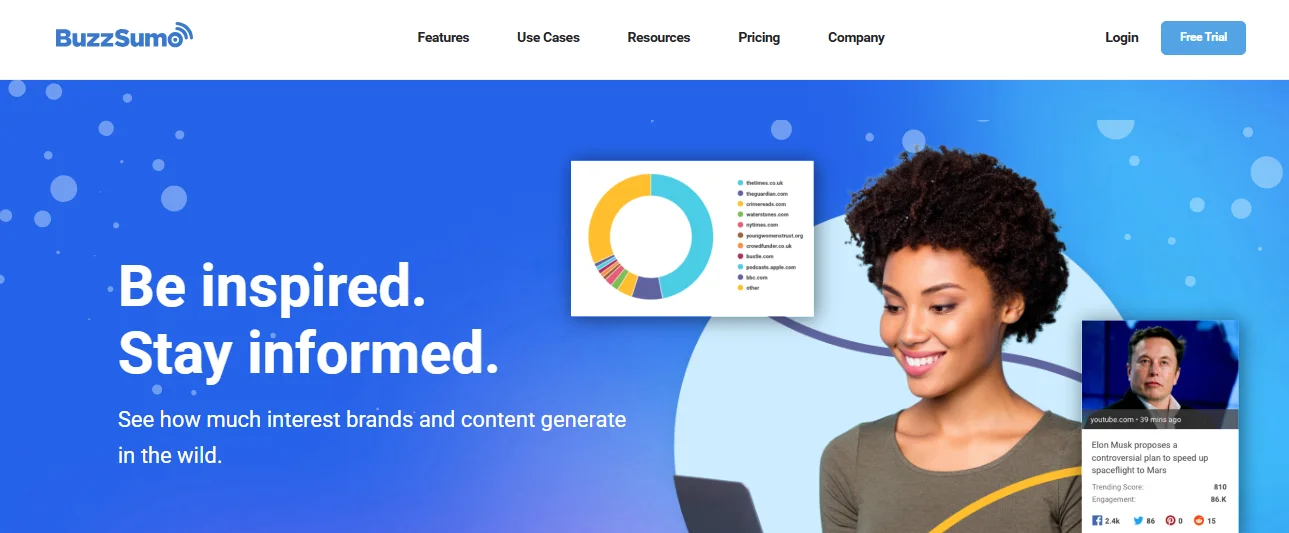
BuzzSumo offers powerful content discovery and social engagement analytics. Its influencer identification helps amplify your content via key shares.
- Features: Content discovery, engagement analytics, top sharers identification, influencer outreach tools.
- Pricing: Plans start from $99/month.
- Best for: Marketers focused on social media and influencer-driven amplification.
- Pros: Rich social metrics, influencer database.
- Cons: Limited features for content creation.
3: Trello (with integrations) — Best for Content Planning & Collaboration
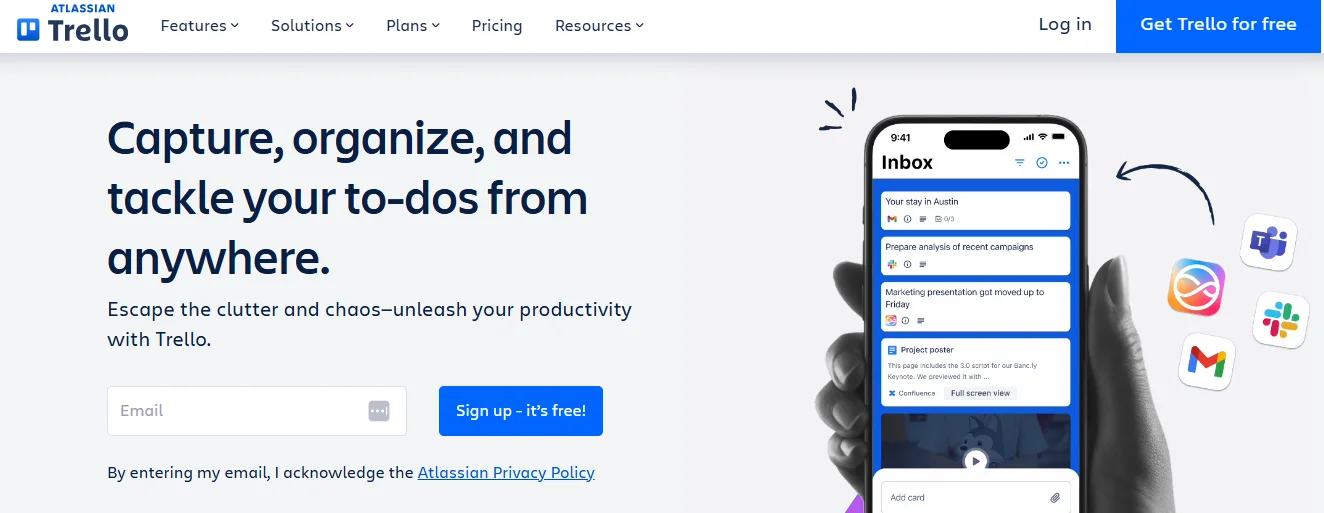
While not a traditional content platform, Trello combined with integrations like Zapier and Google Docs creates a dynamic content planning workspace.
- Features: Visual boards, task assignments, deadlines, integrations for content creation tools.
- Pricing: Free with paid business-class options.
- Best for: Small to medium teams needing flexible, visual project organization.
- Pros: Highly customizable, low-cost.
- Cons: Requires setup; lacks native content drafting.
4: Jasper AI — Best for AI-Powered Content Creation
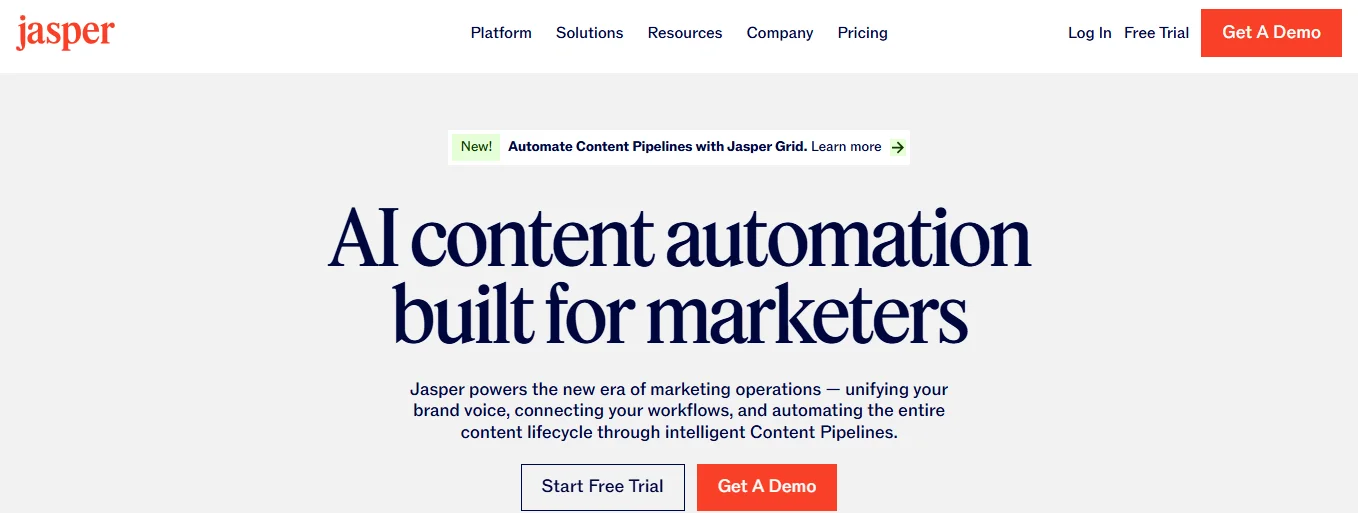
Jasper AI uses advanced AI to generate blog drafts, social posts, and marketing copies on demand, speeding up content production.
- Features: AI-generated content, SEO integration, tone adjustment, long-form writing.
- Pricing: Plans from $49/month.
- Best for: Content teams looking to boost volume without sacrificing quality.
- Pros: Fast content output, versatile AI models.
- Cons: Requires editing, can lack nuance without human polish.
5: SEMrush — Best for SEO & Content Optimization
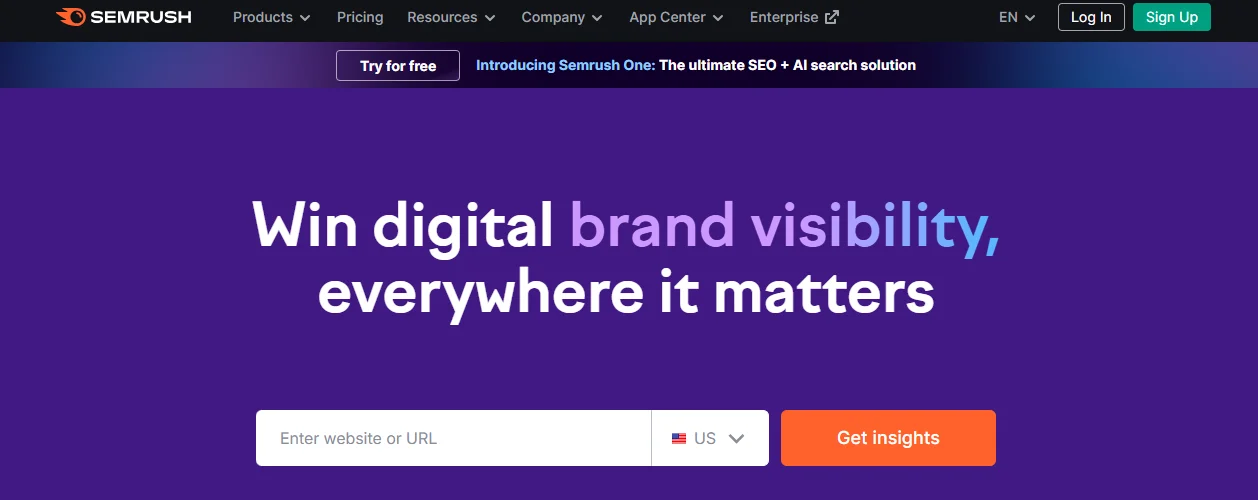
SEMrush offers comprehensive SEO tools integrated into its content marketing platform, allowing optimization throughout the content lifecycle.
- Features: Keyword research, SEO recommendations, content audit, backlink analysis.
- Pricing: Starts at $119.95/month.
- Best for: SEO-focused marketers aiming to improve organic content performance.
- Pros: Deep SEO analytics, all-in-one marketing toolkit.
- Cons: Can be complex for beginners.
6: Google Analytics & Data Studio — Best for Analytics & Performance Tracking
Pairing Google Analytics with Data Studio enables marketers to track detailed user behavior and visualize content performance metrics.
- Features: User behavior tracking, conversion funnels, customizable dashboards.
- Pricing: Free.
- Best for: Data-driven teams needing in-depth performance insights.
- Pros: Powerful data, free.
- Cons: Requires setup and analytics expertise.
7: Outbrain — Best for Native Advertising & Content Discovery
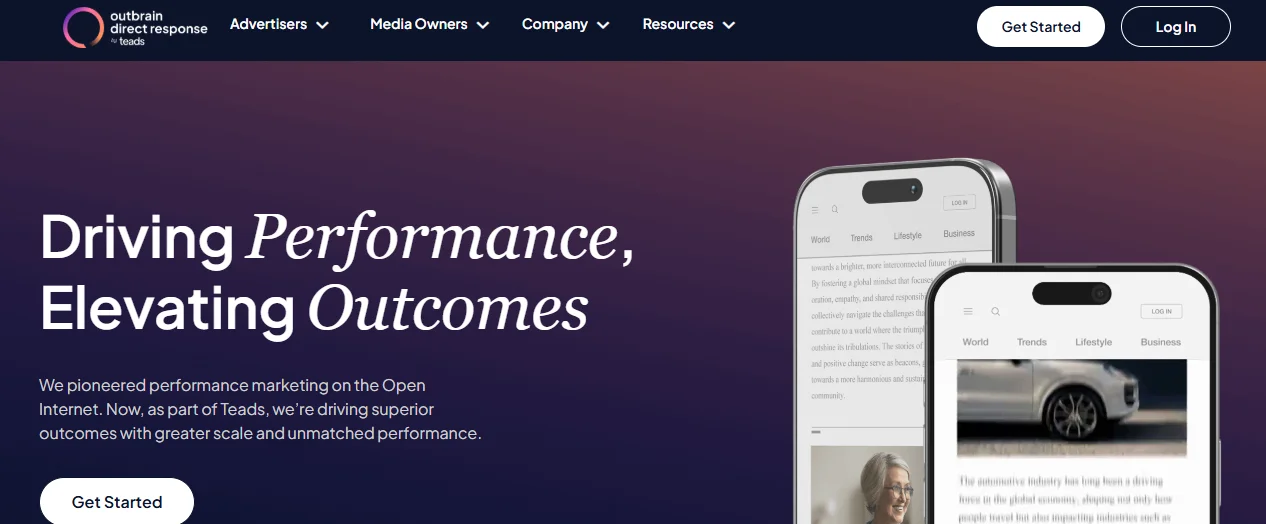
Outbrain excels in native content marketing, offering pay-per-click promotion on high-traffic publisher networks.
- Features: Native ad placements, retargeting, performance analytics.
- Pricing: Campaign cost dependent on CPC, starting as low as $20 budget.
- Best for: Brands wanting to expand reach through paid native content.
- Pros: High reach, cost-effective.
- Cons: Requires ad budget and campaign management.
8: Mailchimp — Best for Email & Personalized Content Distribution

Mailchimp combines email marketing with marketing automation, personalization, and multi-channel messaging.
- Features: Email design, segmentation, automation, analytics.
- Pricing: Free tier available; paid plans from $13/month.
- Best for: Businesses leveraging email as a core content distribution method.
- Pros: Easy to use, strong automation.
- Cons: Limited advanced features on lower plans.
9: Buffer — Best for Small Businesses & Budget-Friendly Scheduling
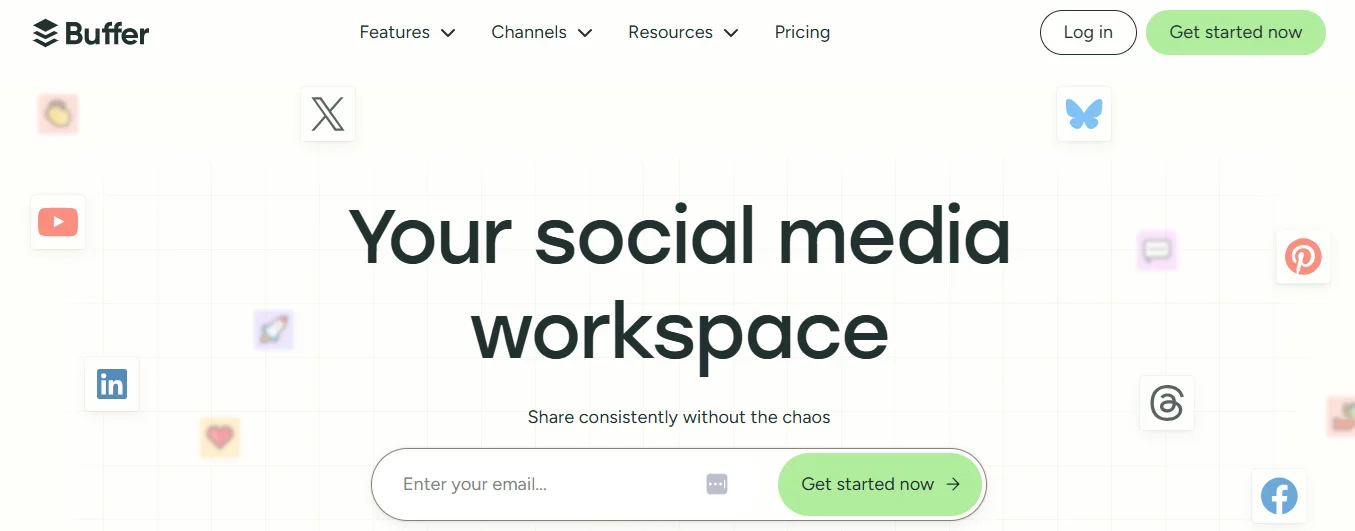
Buffer offers affordable, user-friendly social media scheduling tailored for SMBs.
- Features: Post scheduling, analytics, team collaboration on content.
- Pricing: Plans start at $15/month.
- Best for: Small businesses needing simple social media management.
- Pros: Simple interface, cost-effective.
- Cons: Limited multi-channel features compared to advanced platforms.
Comparison Table
| Platform | Best For | Key Features | Pricing Range | Pros | Cons |
| Contently | Enterprise Scheduling | Scheduling, creative network | Custom pricing | Premium talent, insights | Expensive |
| BuzzSumo | Social & Influencers | Discovery, influencer outreach | From $99/month | Social data, influencer | Limited creation tools |
| Trello | Planning & Collaboration | Visual boards, integrations | Free / Paid options | Customizable, low cost | Not a full platform |
| Jasper AI | AI Content Creation | AI generation, SEO integrated | From $49/month | Quick content | Needs editing |
| SEMrush | SEO Optimization | Keyword tools, audits | From $119.95/month | Comprehensive SEO | Steep learning curve |
| Google Analytics & Data Studio | Analytics | Data tracking, dashboards | Free | Powerful, detailed | Complex setup |
| Outbrain | Native Content Promotion | Native ads, retargeting | Campaign budgets | High reach, cost-effective | Requires ad budget |
| Mailchimp | Email Marketing | Automation, personalization | Free / Paid $13+ | Easy, versatile | Limited advanced tools |
| Buffer | Small Businesses | Social scheduling, analytics | From $15/month | Affordable, simple | Limited channels |
How to Choose the Right Platform for Your Business
Choosing the perfect platform depends on understanding your business needs:
- Team size and skills: Larger teams may need enterprise-grade tools with collaboration, while smaller teams prefer simple, budget-friendly platforms.
- Content types: Blogs, social media, newsletters, video — choose platforms tailored to your dominant content formats.
- Budget constraints: Factor in monthly costs, and potential ROI.
- Growth ambitions: Consider scalability and multi-channel support.
- Tech stack: Ensure platform integrations with your CRM, analytics, and marketing tools.
Platform Pricing Breakdown
- Free Tier Options: Buffer, Mailchimp, and Trello offer free or freemium versions for small users.
- Basic Plans: Range from $15 to around $99/month, good for SMBs and growing teams.
- Professional Plans: $100 to $800/month for advanced features and larger volume.
- Enterprise Solutions: Custom pricing, usually $800+ monthly for dedicated support and extended capabilities.
Common Pitfalls to Avoid
- Choosing based on price alone: Low-cost platforms might lack essential features.
- Ignoring integrations: Disconnected tools cause workflow bottlenecks.
- Overlooking customer support: Poor support can delay your campaigns.
- Not testing with trials: Always test usability and fit before committing.
- Underestimating onboarding: Allocate enough time and training for smooth adoption.
Final Recommendations by Use Case
- Solopreneurs and freelancers: Start with Buffer or Mailchimp for affordable efficiency.
- Growing marketing teams: Consider Jasper AI for content volume and Trello for planning.
- Enterprises: Contently and SEMrush provide comprehensive suites.
- Specific industries: SaaS benefits from SEMrushSEO, e-commerce from Outbrain ads, B2B from Contently’s network.
Conclusion
The right content marketing platform empowers your team to publish consistently, reach your audience effectively, and measure impact clearly. In 2025, with increasing competition and technological capabilities, investing in a suitable platform is non-negotiable.
Start your journey by selecting a platform from this list that aligns with your goals and trying out their free trials or demos. This will enable you to boost your content marketing strategy and gain a competitive edge.

Passionate about blogging and focused on elevating brand visibility through strategic SEO and digital marketing. Always tuned in to the latest trends, I’m dedicated to maximizing engagement and delivering measurable ROI in the dynamic world of digital marketing. Let’s connect and unlock new opportunities together!
